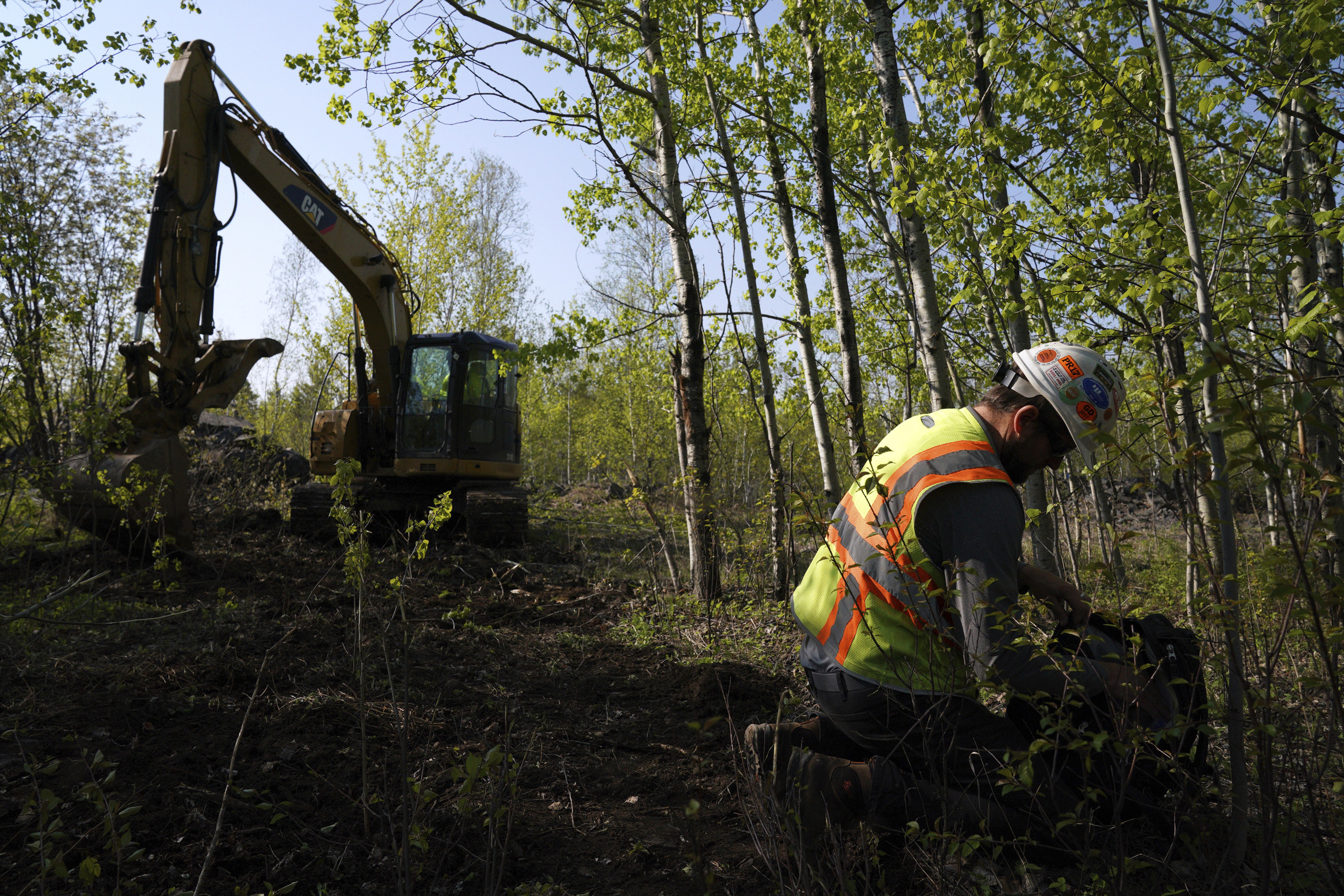
By Steve Karnowski, Associated Press Writer
ST. PAUL, Minn. (AP) — Opponents of the proposed PolyMet copper-nickel mine urged the Minnesota Court of Appeals on Oct. 23 to cancel two of the project’s most important permits and order further proceedings to determine whether the mine’s environmental and financial safeguards are adequate.
“The real problem here is that we lack any terms and conditions in the permits that are enforceable,” argued Ann Cohen, an attorney for several environmental groups. “The public and this court cannot enforce the terms of these permits.”
At issue are PolyMet’s key permit to mine and its separate dam safety permit. The cases heard by a three-judge panel Wednesday involve six of the 11 cases currently pending before the Court of Appeals in the long-running battle over the project in northeastern Minnesota.
Attorney Vanessa Ray-Hodge of the Fond du Lac Band of Lake Superior Chippewa, whose reservation is 70 miles downstream from the planned mine near Babbitt and processing plant near Hoyt Lakes, argued that the state Department of Natural Resources should not have granted the permits before the design of mine’s tailings basin dam was finalized and determined to be safe. The permits allow for ongoing modifications.
And attorney Paula Maccabee, of the environmental group WaterLegacy, argued that the DNR was legally obligated to hold a contested case hearing in front of a neutral administrative law judge who could have issued unbiased findings on the huge volume of evidence before the agency approved the permits.
But attorneys for the DNR and PolyMet argued that the project has undergone thorough public reviews that met all the legal requirements, and that the permits contain enough safeguards to protect the environment and taxpayers.
“The record has established that the DNR’s efforts were unprecedented,” said Jon Katchen, who represents the state agency.
The DNR contends that its environmental review of the project was the most extensive in Minnesota history, with ample opportunities for public input, so that there was no need to hold a separate contested case hearing.
Last month, the court suspended the two permits and asked for more information on what the DNR is doing in response to two major developments that happened after the agency approved the permits last November. One was the disastrous failure at an iron mine in Brazil in January of a tailings basin dam that had some similarities with PolyMet’s planned dam. The other was the acquisition of a majority stake in PolyMet by the Swiss commodities giant Glencore in June.
The three judges heard how the DNR has put a process in place to consider those issues, including whether Glencore should be added to the permits so that the company could be held financially responsible for the mine’s safety and the cleanup costs after it closes. The opponents argued that the stay should remain in place until those issues are resolved.
Chief Judge Edward Cleary asked Katchen and Polymet attorney Jay Johnson a series of pointed questions about the adequacy of the financial assurances package that’s currently part of the permit to mine, and about the dam.
Katchen defended the monetary guarantees as “extremely robust” and said experts have endorsed the safety of the dam design and its ability to keep pollutants contained.
The Court of Appeals usually rules within 90 days of hearing oral arguments. If the court sides with PolyMet, it will give a major victory to the project but not the final green light, given that other challenges are pending and that PolyMet is still raising $1 billion in construction financing. If the court backs the opponents, it would mean further proceedings and delays in an already lengthy process.
Featured image: In this May 29, 2019 file photo, Eric Olson, right, gathers his tools as contractor Robert Radotich uses a backhoe to dig areas so the soil stratification can be observed, which will help them engineer and design the infiltration pods for the PolyMet copper-nickel mine in Hoyt Lakes, Minn. (Anthony Souffle/Star Tribune via AP, File)




